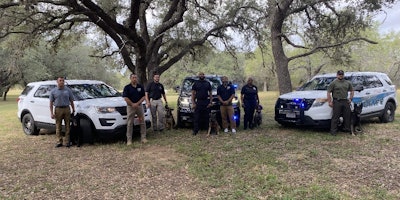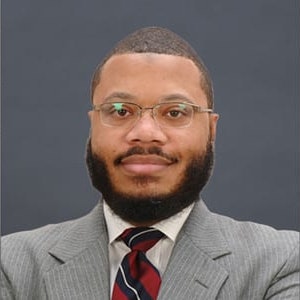 The Department of Homeland Security's Office of State and Local Law Enforcement partnered with HBCUs North Carolina A&T, Benedict College, Southern University and A&M College, and Florida A&M University in its first K9 Bomb Detection Adoption Program.
The Department of Homeland Security's Office of State and Local Law Enforcement partnered with HBCUs North Carolina A&T, Benedict College, Southern University and A&M College, and Florida A&M University in its first K9 Bomb Detection Adoption Program.
In the year since, the Department of Homeland Security (DHS) and local and state law enforcement agencies partnered with HBCUs, strengthening their relationships as they worked to increase institutions’ emergency readiness and security. In September 2022, the Federal Bureau of Investigation (FBI) announced they had identified a primary suspect—a minor, whose juvenile status would likely shield them from federal prosecution or charges.
Representatives from the United Negro College Fund (UNCF) and Thurgood Marshall College Fund (TMCF), organizations which represent private and public HBCUs respectively, said that one year later, accountability still has a role to play—that justice, even for a minor, would have a chilling effect that could stop others who feel inspired to incite violence again.
“The Biden-Harris White House can be, in only two years’ time, probably the best administration for HBCUs, and at the same time, their justice department and FBI have left us wanting,” said Lodriguez Murray, senior vice president of public policy and government affairs at UNCF.  Lodriguez Murray, senior vice president of public policy and government affairs at UNCF.
Lodriguez Murray, senior vice president of public policy and government affairs at UNCF.
In the past year, communication has been lax, Murray said, adding that, to the best of his knowledge, the FBI’s federal office has not reached out to anyone from UNCF to discuss what kind of justice might await the juvenile responsible for the threats, or the details of why or how the threats happened. On November 15, 2022, FBI Director Christopher Wray informed the House Homeland Security Committee that they have worked with state prosecutors to charge the juvenile with "various other state offenses," and that his local FBI offices remain engaged with HBCUs across the country. This is the last public information the FBI has offered.
“We’re still waiting on [the FBI and Justice Department] to establish better communication with us and learn more about what has really happened,” said Murray. “I don’t want this to be a documentary 25 years from now about the HBCU bomb threats of 2022, and people are still wondering what really happened at the conclusion. Because, quite frankly, those of us who endured this on a daily basis are not sure what happened at the conclusion, and we’re living it real time.”





















